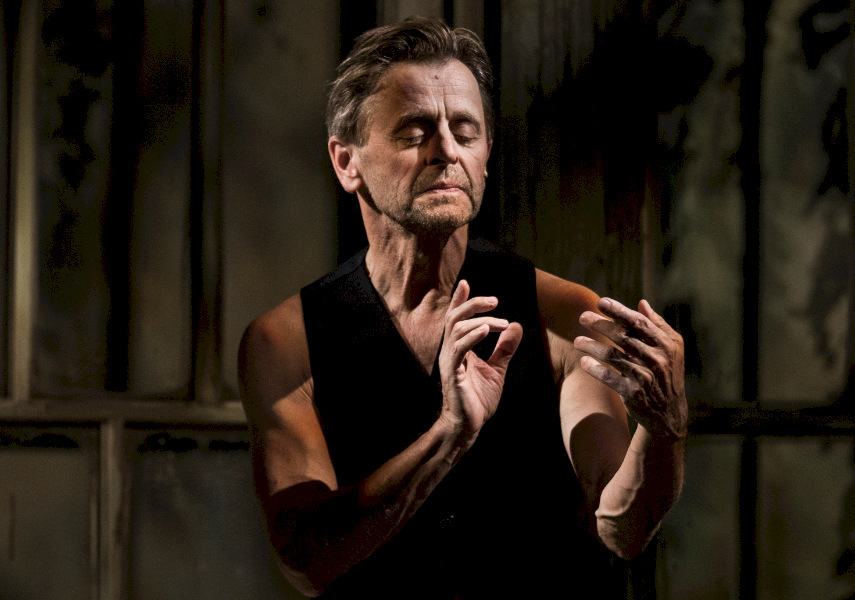
“I remember his voice, I remember the way he read.” Screenshot from Brodsky/Baryshnikov
We’ve written before about Mikhail Baryshnikov’s acclaimed Brodsky/Baryshnikov show, which blends the renowned dancer’s movements with the poetry of his friend, the Nobel poet Joseph Brodsky. (I hear rumors that the show, which debuted in the dancer’s native Riga, is coming to Berkeley, but so far it’s not showing up on any websites so far.)
However, we missed Neil Munshi’s Financial Times of London’s article, “Poetry and motion: Mikhail Baryshnikov on Joseph Brodsky”, which describes the two Russians’ long camaraderie. An excerpt:
“He loved to be by the embankment, because it reminded him of Leningrad, with the water and perspective,” Baryshnikov says. “In his poetry, there are so many poems about water, from the north to Venice, to the Hudson, to the Caribbean. He really worked on a metaphysical level about the water: the proximity, and the colour, and the essence of it. Water is his church, Brodsky’s church, because he grew up [with the] Neva River.” Baryshnikov has referred to Brodsky as his “university”, the man who gave him the higher education his dancing prevented him from receiving. Brodsky introduced him to not just the work of writers but to the writers themselves.

Screenshot from Brodsky/Baryshnikov
“He said that he was surprised how much poetry I know, which was a total exaggeration. He was trying to pay me a compliment, I don’t know why. But I would rather sit and listen to his conversations with Derek Walcott, and maybe half of it, I couldn’t understand. Or with Stephen Spender, or Czeslaw Milosz. He’d just talk about politics with Susan Sontag,” he says. Baryshnikov moved on to reading “Walcott from St Lucia, and Seamus Heaney in Ireland, or Louise Glück, in the States, or Mark Strand”.
“One of the first books Joseph gave me was a book of Mark Strand,” Baryshnikov says. “He said, ‘Mouse, have this.’ And I said, ‘Joseph, I don’t speak a word of English.’ It was at the very beginning. He said, ‘You will, and very soon, and we will read this man.’ And he was absolutely right.” And there was always Brodsky. Baryshnikov keeps a full collection of his friend’s work in all of his homes and offices. “I always travel with one or two [of Brodsky’s] books. And some of them are still too difficult for me. I’m not pretending that I know his work inside-out at all,” he says. “I remember his voice, I remember the way he read. Sometimes he asked me to read. He said, ‘I want to hear a different voice, can you read this?’ Sometimes, I was lucky to be the first person to whom he read.”
Read the whole thing here.

Early days: Joseph Brodsky in Ann Arbor in the 1970s.

